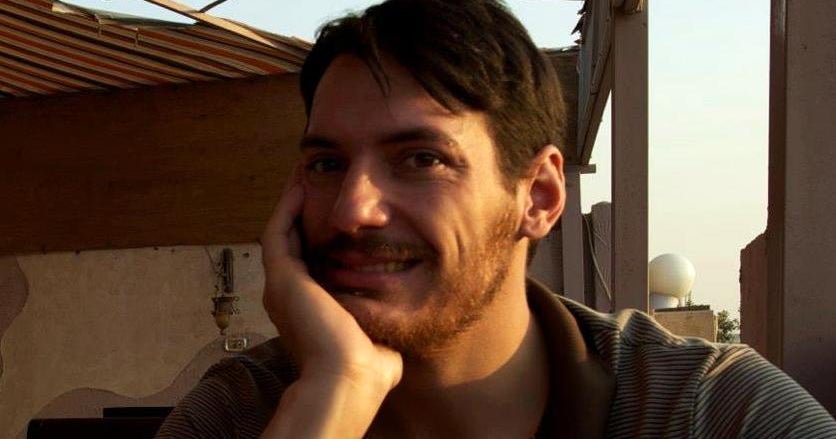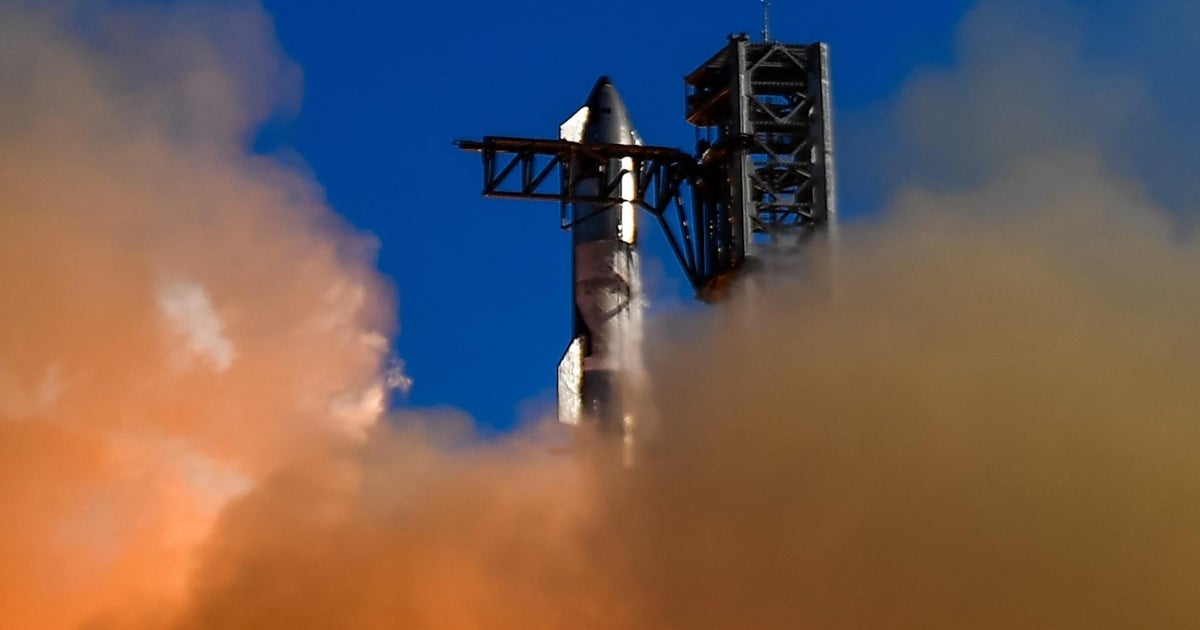CBS News
Tech companies are slashing thousands of jobs as they pivot toward AI

Technology companies are investing heavily in artificial intelligence, and some workers are already paying the price.
SAP is the latest big tech player to cut jobs as it pours money into AI, with the German software giant announcing this week that it is investing more than $2 billion to integrate artificial intelligence into its business as part of what it called “transformation program.” At the same time, the company said Tuesday it plans to restructure 8,000 roles. Some of the workers will be laid off, while others will be re-trained to work with AI.
The company said it expects to employ roughly the same number of workers at year’s end as it does now.
SAP is not an outlier. In the little more than a year since generative AI tools like ChatGPT, based on so-called large language model technology, have been available to the public, a number of large tech companies have announced plans to plunge into AI — job cuts often follow.
“I would counsel folks to watch what the firms do, and if they are saying the presence of large language models is allowing them to lay people off, that has to be taken into account,” said Mark Muro, a senior fellow at the Brookings Institution who studies the interplay between technology and people. “There is no doubt forthcoming work is going to show that coding and many engineering type occupations have very high exposure levels [to AI]. So we should take them at face value on this.”
Last week, Alphabet-owned Google said it laid off hundreds of workers from its ad sales team as it further invests in AI. Although Google did not directly attribute the layoffs to AI, in a memo to employees obtained by Business Insider Google’s chief business officer, Philipp Schindler, referred to the “profound moment we’re in with AI” in announcing the cuts.
Microsoft is also doubling down on AI, investing billions in ChatGPT maker OpenAI, as it slashes jobs. And language learning platform Duolingo acknowledged a 10% reduction in its contractor workforce at the end of 2023, but denied that all of the cuts were related to increased AI usage.
“In some cases, this was because the contractor’s project concluded, and in some cases this was because the contractor’s work was no longer needed due to changes in how we generate and share content between our 100+ language courses,” a spokesperson told CBS MoneyWatch.
Duolingo added that it does sometimes use AI to generate sentences and translations and that AI can help contractors work faster.
Is AI already replacing people?
To be sure, some of the companies are redirecting their investments into AI while cutting spending in other areas of their business, leading to layoffs. Columbia University business professor Oded Netzer cautioned against lining rising corporate investment in AI to worker layoffs.
“We know 2023 was the year of generative AI and companies invested in it heavily,” he told CBS MoneyWatch. “That means there are some jobs they’ve decided to invest less in, and they may be laying off workers. But it also means the jobs they’re hiring for are related to AI. That’s not to say AI replaces jobs.”
In Netzer’s view, companies are simply doing what they typically do — hiring more workers that specialize in fast-growing parts of the business, while laying off those whose skills may be less useful or contribute less to revenue growth. For example, he said, as Microsoft invests in AI it might decide to scale back its production of computer hardware, like keyboards.
Still, recent tech layoffs may be a troubling sign for employees who were told that AI would eliminate some of the rote work associated with their jobs, freeing them up to engage in more creative or productive work. Because technology is diffused across all types of companies in different sectors, big tech corporations can serve as a bellwether for the rest of the economy.
“All sort of firms use digital technologies, so I think this is a sobering signal. It does appear these impacts are occurring quite rapidly,” Muro of Brookings said.
Eliminating workers as they invest in AI is “low hanging fruit” for companies, he added. Yet a lot remains to be seen about how the AI revolution plays out in the workplace.
“A lot of training and re-skilling may be a common outcome. There may be some layoffs with the enhancement of other jobs,” he said.
Cory Stahle, an economist at the Indeed Hiring Lab, told CBS MoneyWatch that AI tools are not yet sophisticated enough to replace workers entirely. They may be able to perform certain job functions, but still require human input and supervision. The layoffs are also likely tied to companies consolidating their workforces after going on hiring sprees during the pandemic, he added.
“They are rebalancing after the huge hiring burst we saw couple years back during the pandemic when people were at home, consuming more tech products than they normally would have,” Stahle said. “Now they are back out flying and staying at hotels, and the shift in consumer demand is necessitating an adjustment at these tech companies.”
If AI were really the culprit, layoffs would be far more widespread across diverse industries, according to Stahle. “And we haven’t seen that happen yet,” he said.
CBS News
Biden’s top hostage envoy Roger Carstens in Syria to ask for help in finding Austin Tice

Roger Carstens, the Biden administration’s top official for freeing Americans held overseas, on Friday arrived in Damascus, Syria, for a high-risk mission: making the first known face-to-face contact with the caretaker government and asking for help finding missing American journalist Austin Tice.
Tice was kidnapped in Syria 12 years ago during the civil war and brutal reign of now-deposed Syrian dictator Bashar al-Assad. For years, U.S. officials have said they do not know with certainty whether Tice is still alive, where he is being held or by whom.
The State Department’s top diplomat for the Middle East, Barbara Leaf, assistant secretary of state for Near Eastern Affairs, accompanied Carstens to Damascus as a gesture of broader outreach to Hay’at Tahrir al-Sham, known as HTS, the rebel group that recently overthrew Assad’s regime and is emerging as a leading power.
Near East Senior Adviser Daniel Rubinstein was also with the delegation. They are the first American diplomats to visit Damascus in over a decade, according to a State Department spokesperson.
They plan to meet with HTS representatives to discuss transition principles endorsed by the U.S. and regional partners in Aqaba, Jordan, the spokesperson said. Secretary of State Antony Blinken traveled to Aqaba last week to meet with Middle East leaders and discuss the situation in Syria.
While finding and freeing Tice and other American citizens who disappeared under the Assad regime is the ultimate goal, U.S. officials are downplaying expectations of a breakthrough on this trip. Multiple sources told CBS News that Carstens and Leaf’s intent is to convey U.S. interests to senior HTS leaders, and learn anything they can about Tice.
Rubinstein will lead the U.S. diplomacy in Syria, engaging directly with the Syrian people and key parties in Syria, the State Department spokesperson added.
Diplomatic outreach to HTS comes in a volatile, war-torn region at an uncertain moment. Two sources even compared the potential danger to the expeditionary diplomacy practiced by the late U.S. Ambassador Christopher Stevens, who led outreach to rebels in Benghazi, Libya, in 2012 and was killed in a terrorist attack on a U.S. diplomatic compound and intelligence post.
U.S. special operations forces known as JSOC provided security for the delegation as they traveled by vehicle across the Jordanian border and on the road to Damascus. The convoy was given assurances by HTS that it would be granted safe passage while in Syria, but there remains a threat of attacks by other terrorist groups, including ISIS.
CBS News withheld publication of this story for security concerns at the State Department’s request.
Sending high-level American diplomats to Damascus represents a significant step in reopening U.S.-Syria relations following the fall of the Assad regime less than two weeks ago. Operations at the U.S. embassy in Damascus have been suspended since 2012, shortly after the Assad regime brutally repressed an uprising that became a 14-year civil war and spawned 13 million Syrians to flee the country in one of the largest humanitarian disasters in the world.
The U.S. formally designated HTS, which had ties to al Qaeda, as a foreign terrorist organization in 2018. Its leader, Mohammed al Jolani, was designated as a terrorist by the US in 2013 and prior to that served time in a US prison in Iraq.
Since toppling Assad, HTS has publicly signaled interest in a new more moderate trajectory. Al Jolani even shed his nom de guerre and now uses his legal name, Ahmed al-Sharaa.
U.S. sanctions on HTS linked to those terrorist designations complicate outreach somewhat, but they haven’t prevented American officials from making direct contact with HTS at the direction of President Biden. Blinken recently confirmed that U.S. officials were in touch with HTS representatives prior to Carstens and Leaf’s visit.
“We’ve heard positive statements coming from Mr. Jolani, the leader of HTS,” Blinken told Bloomberg News on Thursday. “But what everyone is focused on is what’s actually happening on the ground, what are they doing? Are they working to build a transition in Syria that brings everyone in?”
In that same interview, Blinken also seemed to dangle the possibility that the U.S. could help lift sanctions on HTS and its leader imposed by the United Nations, if HTS builds what he called an inclusive nonsectarian government and eventually holds elections. The Biden administration is not expected to lift the U.S. terrorist designation before the end of the president’s term on January 20th.
Pentagon spokesperson Pat Ryder disclosed Thursday that the U.S. currently has approximately 2,000 US troops inside of Syria as part of the mission to defeat ISIS, a far higher number than the 900 troops the Biden administration had previously acknowledged. There are at least five U.S. military bases in the north and south of the country.
The Biden administration is concerned that thousands of ISIS prisoners held at a camp known as al-Hol could be freed. It is currently guarded by the Syrian Democratic forces, Kurdish allies of the U.S. who are wary of the newly-powerful HTS. The situation on the ground is rapidly changing since Russia and Iran withdrew military support from the Assad regime, which has reset the balance of power. Turkey, which has been a sometimes problematic U.S. ally, has been a conduit to HTS and is emerging as a power broker.
A high-risk mission like this is unusual for the typically risk averse Biden administration, which has exercised consistently restrained diplomacy. Blinken approved Carstens and Leaf’s trip and relevant congressional leaders were briefed on it days ago.
“I think it’s important to have direct communication, it’s important to speak as clearly as possible, to listen, to make sure that we understand as best we can where they’re going and where they want to go,” Blinken said Thursday.
At a news conference in Moscow Thursday, Russian President Vladimir Putin said he had not yet met with Assad, who fled to Russia when his regime fell earlier this month. Putin added that he would ask Assad about Austin Tice when they do meet.
Tice, a Marine Corps veteran, worked for multiple news organizations including CBS News.
CBS News
12/19: CBS Evening News – CBS News

Watch CBS News
Be the first to know
Get browser notifications for breaking news, live events, and exclusive reporting.
CBS News
Delivering Tomorrow: talabat’s Evolution in the Middle East

Watch CBS News
Be the first to know
Get browser notifications for breaking news, live events, and exclusive reporting.








